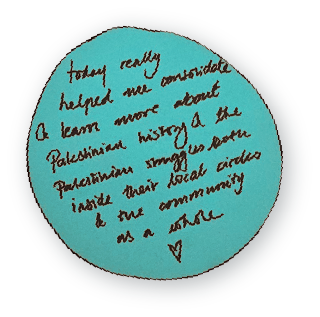International Court of Justice

The International Court of Justice (ICJ) is based in The Hague and is the main judicial body of the United Nations. It was established in 1945 by the Charter of the United Nations (UN) and is composed of 15 judges from various countries. Its two main functions are to settle legal disputes between states1 and to give advisory opinions on legal matters referred by duly authorised UN organs or special agencies.2 Both have been exercised by the ICJ in relation to Palestine.
The most notable example where the ICJ pronounced on the situation in Palestine is in the case brought by South Africa against Israel in December 2023, months after the beginning of Israel’s genocide on Gaza. South Africa’s case sets out how Israel’s brutal onslaught in Gaza constitute acts committed with “intent to destroy, in whole or in part, a national, ethnic, racial or religious group” under the Genocide Convention, and requests the Court to order immediate provisional measures of protection including an immediate ceasefire.
In its first provisional order of January 2024, the ICJ held that it is “plausible” that Israel’s acts in Gaza constituted genocide, but fell short of ordering an immediate ceasefire. Later, in view of the intensifying famine in Gaza, the ICJ in March 2024 issued a further order for the unhindered provision of aid in Gaza. Israel has nevertheless continued to flout the ICJ’s orders since.
In another example, Nicaragua in March 2024 brought a case against Germany before the ICJ, challenging its provision of arms to Israel as a breach of international law. Nicaragua requested provisional measures namely the suspension of military supplies to Israel and the resumption of suspended funding to UNRWA. The Court nevertheless ruled against the requested measures, reflecting that the ICJ is heavily constrained by the state of the law.
The other function of the ICJ – to issue advisory opinions on legal questions referred to it – has been crucial to clarifying the illegality of Israel’s occupation in Gaza. The ICJ issued advisory opinions relating to the legality of Israel’s construction of the Separation Wall along the West Bank and its prolonged occupation over Palestine in 2004 and 2024 respectively, after the UN General Assembly referred these legal questions to the Court.
In both Advisory Opinions, the Court ruled that Israel’s construction of the Separation Wall and its associated regime severely impeded the exercise of Palestinian rights and was tantamount to de facto annexation, in breach of Israel’s obligation to respect the right to self-determination of the Palestinian people. The Court further ruled that the regime of comprehensive restrictions on and separation of Palestinians constitutes systemic discrimination based on race or religion – an implicit reference to apartheid – and is thus illegal.
Despite the significance of the ICJ’s legal authority and the weight of its decisions and advisory opinions, the ICJ is severely constrained by the fact that advisory opinions are not binding, and even rulings with binding effect are powerless when met with Western impunity for Israel.
References
For resources on the ICJ, see:
- Hugh Thirlway, The International Court of Justice
- Serena Forlati, The International Court of Justice: An Arbitral Tribunal or a Judicial Body?
- More information concerning the International Court of Justice, including cases, jurisdiction, and history can be found at: http://www.icj-cij.org/en
- The Committee on the Exercise of the Inalienable Rights of the Palestinian People was founded in 1975 as a way for “Palestinian people to exercise their inalienable rights to self-determination without external interference, national independence and sovereignty; and to return to their homes and property from which they have been displaced.” The Committee reports to the UNGA annually. This is a useful means of having Palestinian rights brought to the UN since Palestine does not have full UN member state status. https://unispal.un.org/DPA/DPR/unispal.nsf/1ce874ab1832a53e852570bb006dfaf6/1201bbc82984ff1f852579840067fde8?OpenDocument
- The United Nations General Assembly is one of six organs of the United Nations. It is a policy-making and representative organ, as well as the only UN organ in which all UN Member States are equally represented. http://www.un.org/en/ga
- The Arab Association for Human Rights (HRA) works to promote and protect the political, civil, economic, and cultural rights of the Palestinian Arab minority in Israel and to further the domestic implementation of international human rights principles. http://www.arabhra.org/en/online/
Footnotes:
Palestine 101
Learn the basics

